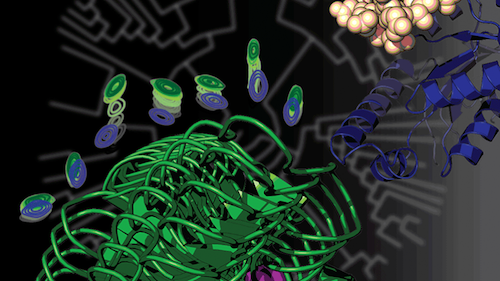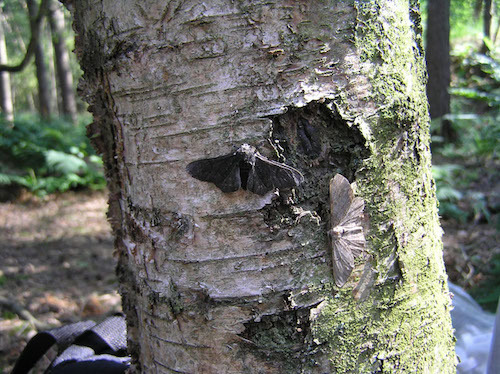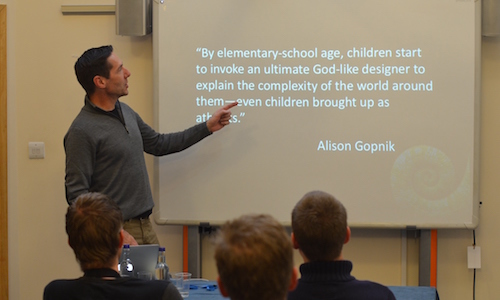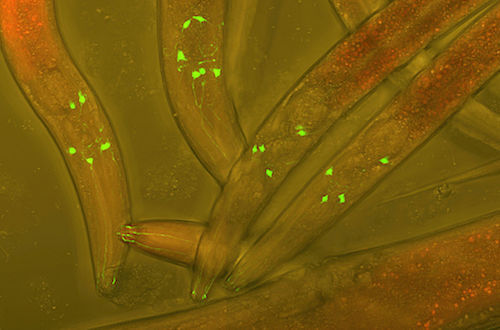Discovery Institute's Blog, page 21
November 29, 2016
In Election 2016, Why Big Data Took a Tumble

The Presidential election results threw Silicon Valley off in more ways than one. Not only did the favored candidate fail to get elected, the surprise result called into question the fancy algorithms and reams of data that said she would. Many pundits wrote after-the-fact essays, but, one, at the New York Times, was insightful. The authors understood the import of the unexpected results:
Donald J. Trump's victory ran counter to almost every major forecast -- undercutting the belief that anal...
Evolutionist Recommends "Listening to Other Arguments," Except When It Comes to Evolution
[image error]
Evolutionary biologist Rob Brooks decries "tribal thinking" and advocates "listen[ing] to other arguments" -- except when it comes to people who disagree with him on evolution. He writes at The Conversation:
Today, in the challenge-free spaces and echo-chambers of our social media feeds, we are arguably becoming ever more vulnerable to tribal convictions. Almost half of us now get all our news from Facebook, for example; information that is digitally targeted to align with our interests. As...
For the Book-Loving ID Enthusiast in Your Life: Our Christmas Shopping List

With Thanksgiving behind us and Christmas on its way, it's time for even the most procrastination-prone among us to start Christmas shopping. The Center for Science & Culture has an array of books, DVDs, and other resources that make great gifts, no matter who you're shopping for! Below, we've compiled our favorite items from this year, along with some of the best resources from past years.
 Revolutionary: Michael Behe and the Mystery of Molecular Machines is a documentary that both looks bac...
Revolutionary: Michael Behe and the Mystery of Molecular Machines is a documentary that both looks bac...
Harvard Astronomer: "We Seem to Be Cosmically Special, Perhaps Even Unique"
Writing in the Washington Post, Harvard astronomer Howard Smith forcefully blunts Stephen Hawking's assertion that "The human race is just a chemical scum on a moderate-sized planet." Of course, it's not only Dr. Hawking who says as much -- denying human exceptionalism is close to universal orthodoxy among the socio-academic demographic he occupies. Carl Sagan put the same view a little more mildly: "We find that we live on an insignificant planet of a humdrum star."
Smith points out, howeve...
November 28, 2016
Refuting Behe's Critics, Meyer Gives Four Reasons the Flagellum Predates the Type III Secretory System
Michael Behe's signature argument in Darwin's Black Box would be seriously bruised if it turned out the bacterial flagellar motor had a simpler evolutionary antecedent. Critics of intelligent design thought they had identified such a precursor in the form of the Type III Secretory System, found in some bacteria.
Behe and others have since shown why it's far likelier that the flagellum is the precursor, thus leaving Dr. Behe's argument intact. In response, the critics either simply repeat th...
Prehoda's Goof: Mutational Fitness Effects Cannot Be Predicted

Last February when we looked into the claims of University of Oregon biochemist Kenneth Prehoda, we saw him pounding Darwin's pulpit with righteous fervor. He practically shouted that you could get instant animals by chance. His team's discovery of a mutation that seemed to allow proteins to interact more easily in a choanoflagellate became the springboard for a sermon envisioning all the marvels of multicellularity without intelligent design.
Indeed, a breathless reporter from the Washingt...
November 27, 2016
Peppered Moth: How Evolution's Poster Child Became the Rebuttal

It has been called one of the best examples of evolution observed in the wild -- light colored peppered moths (Biston betularia) became dark colored in response to 19th century industrial pollution darkening the birch trees in their environment. Evolving a darker color helped camouflage the moths, and keep them hidden from predatory birds. And more recently, air pollution reductions lightened the environment and with it, the moths also began to revert to their lighter color.
Proof of evolut...
November 26, 2016
Axe: Cambridge U. Meeting Was a "Temperature Check"

Having returned from two meetings in the UK -- the Royal Society conference (he reflects on it here) and the "Beyond Materialism" meeting at Cambridge University -- Douglas Axe sat down for a debriefing by Andrew McDiarmid with ID the Future. The Cambridge event, at Hughes Hall, was co-sponsored by Discovery Institute and our UK partners at the Centre for Intelligent Design. It marked a return for Axe to the academic setting where he did much of his early research on protein evolution.
Down...
November 25, 2016
Best of Behe: Design for Living

Editor's note: The following was published in the New York Times on February 7, 2005. In celebration of the 20th anniversary of biochemist Michael Behe's pathbreaking book Darwin's Black Box and the release of the new documentary Revolutionary: Michael Behe and the Mystery of Molecular Machines, we are highlighting some of Behe's "greatest hits." Remember to get your copy of Revolutionary now!
As one of the scientists who have proposed design as an explanation for biological systems, I have...
November 24, 2016
Thanksgiving Special: The Genius of Birds

No, not that bird, much as a prime Thanksgiving turkey done right can seem like a work of genius. Did you enjoy Illustra's Flight: The Genius of Birds? Then you'll appreciate this material from recent science news that could easily fill up an hour or two of documentary filmmaking, once you are done with your feasting tonight.
Brain power: Watch the video from New Scientist of Figaro, a cockatoo, fashioning a tool to get a treat.
First, Figaro makes one out of wood. The scientists in Vienna...
Discovery Institute's Blog
- Discovery Institute's profile
- 15 followers




